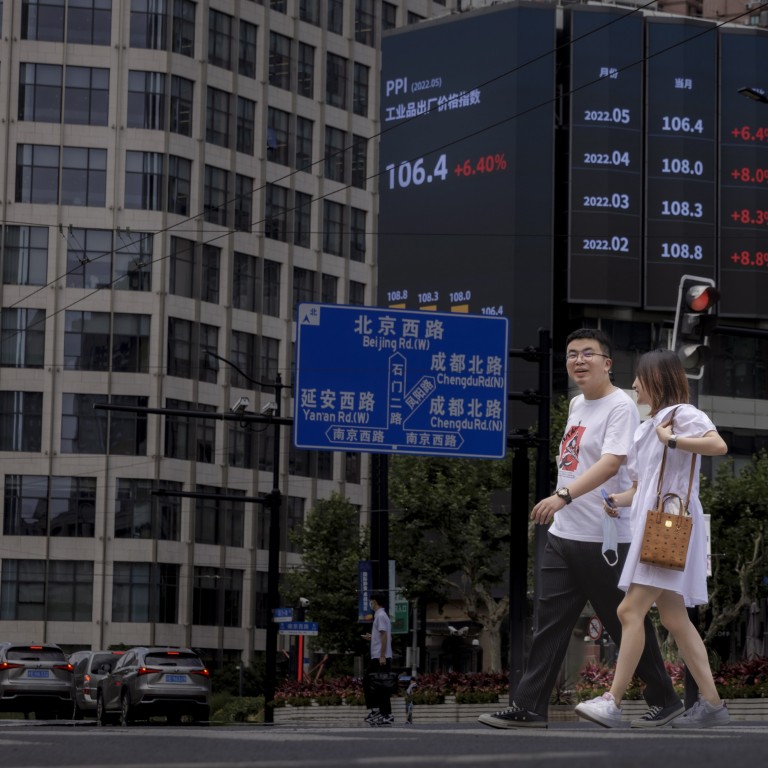
Chinese stocks to continue outgunning global peers as UBS wealth managers join bullish camp on second-half outlook
- UBS Wealth Management sees MSCI China gaining 7 to 10 per cent on annual basis in 2022 with certainty in economic recovery, tailwind in corporate earnings
- Fund flows suggest investors are turning upbeat on Chinese stocks despite ‘big swing factor’ in zero-Covid policy
The MSCI China Index, the broadest gauge of stocks listed in mainland and offshore markets, could end the year with a 7 to 10 per cent gain over 2021, according to Hu Yifan, chief investment officer for Greater China at UBS Wealth Management in Hong Kong.
“We are particularly optimistic about the China market in the second half, mostly because the recovery of the economy would be a certain event,” she said at a briefing on Wednesday. “We estimate that profits of [Chinese] companies for the whole year could go up by 10 per cent.”
In the short term, UBS is bullish on companies in the digital economy, supply chains of electric cars, renewable energy, and cyclical stocks and value stocks in energy and banking sectors, Hu added, without singling out specific stocks.
The MSCI China Index, which tracks 739 companies with US$2.1 trillion of market capitalisation, would have to climb as much as 24.6 per cent in the second half to meet the top-end of UBS’s annual target. The gauge advanced 5.7 per cent in June, the best in 17 months, while global stocks slumped 8.6 per cent into bear-market territory.
Strategists at Goldman have remained bullish on Chinese stocks despite the wild swings this year, after the index slumped 21.6 per cent in 2021 and hit a two-year low in the mid-March rout. Credit Suisse said Chinese stocks are still cheap and it’s not too late to fish near the bottom of the market.
Even so, China’s zero-Covid policy remains a double-edged sword. Uncertainty surrounding its approach is a source of discomfort for money managers, according to PineBridge Investments, which manages about US$83 billion of assets in the Asia-Pacific region.
“Covid measures will remain the biggest swing factor for the near-term economic growth trend,” said Cynthia Chen, portfolio manager of Asia ex-Japan equities at PineBridge. “China’s zero-Covid policy has changed the country’s growth trajectory and has further reduced the market’s correlation with the rest of the world.”
While China’s Covid-19 measures helped foster the strongest rebound a year after the pandemic, that advantage has started to fade, Chen added. A slowdown in exports, geopolitical risks, a domestic crackdown on tech companies and excessive debt in the property sector have sapped risk appetite.
Fund flows suggest investors are turning upbeat on Chinese stocks. Foreign investors have ploughed US$11 billion into Chinese onshore stocks in June via the Stock Connect’s northbound channel, according to data compiled by Goldman Sachs, compared with US$21 billion of selling across Asia-Pacific equity markets.
Hu expects the recent outperformance of MSCI China Index to persist as China adjusted its zero-Covid policy to deal with Covid-19 outbreaks. Policy loosening at home is also a favourable trend, she added, attracting funds away from markets that are facing aggressive tightening and recession risks, like in the US and other major economies.


